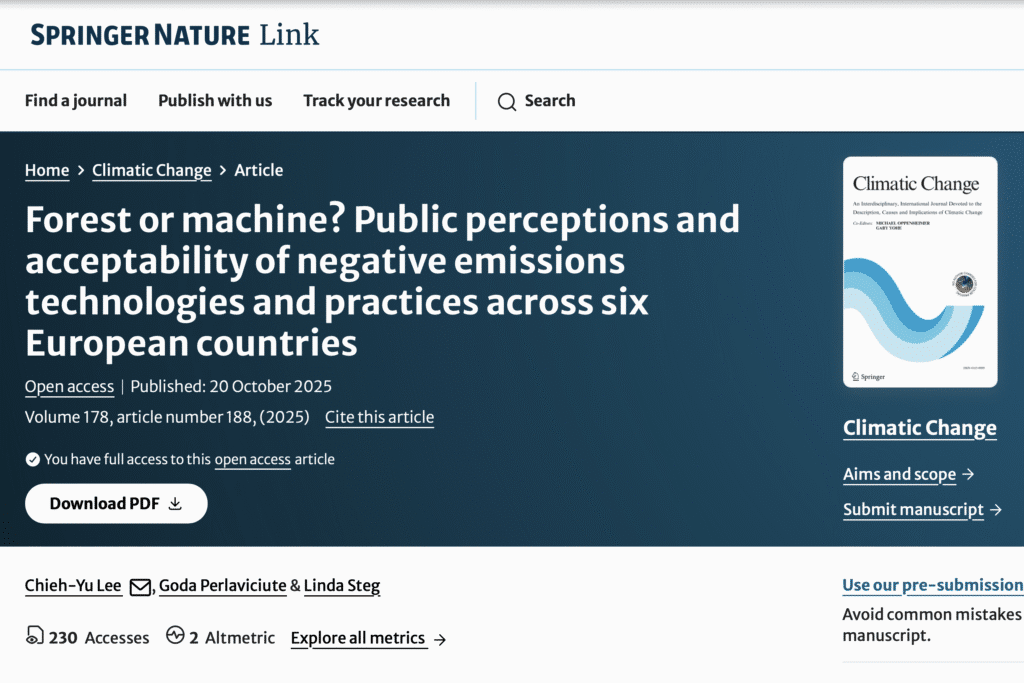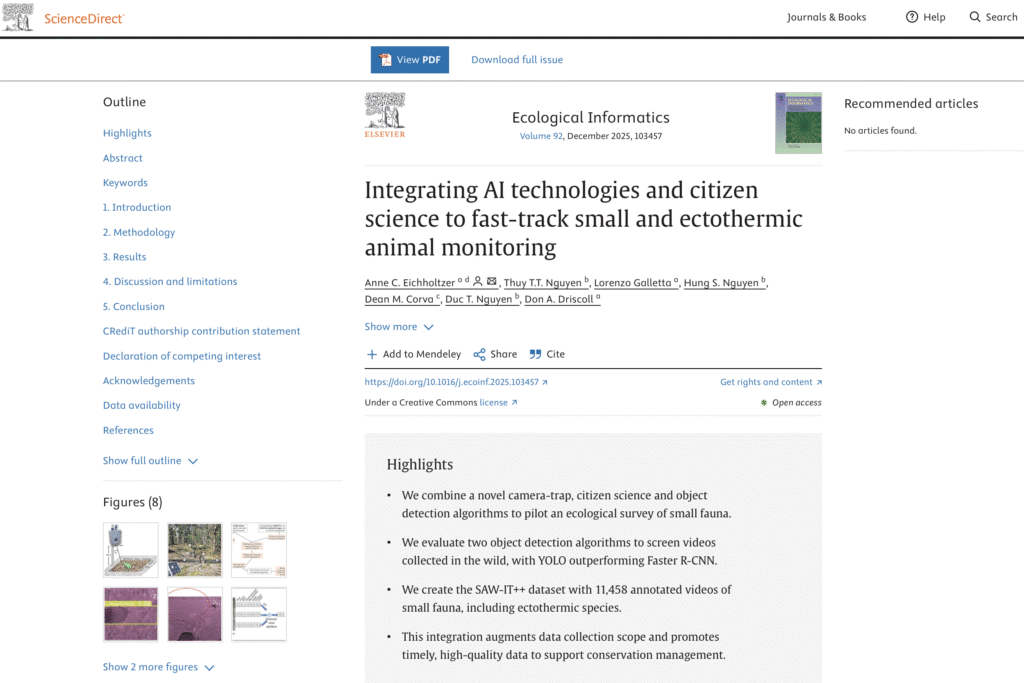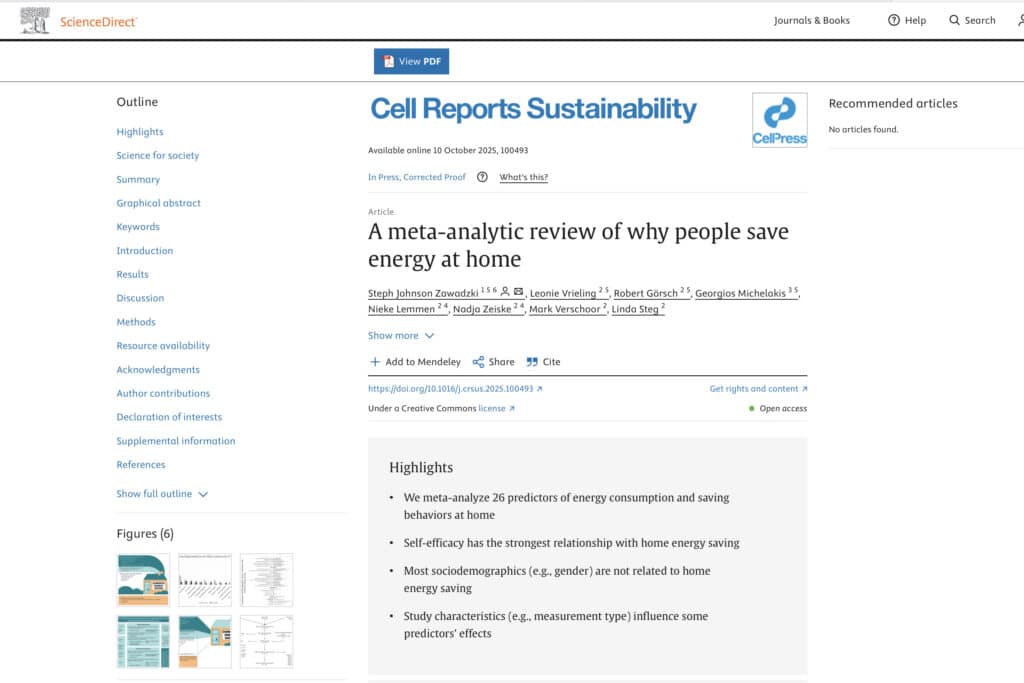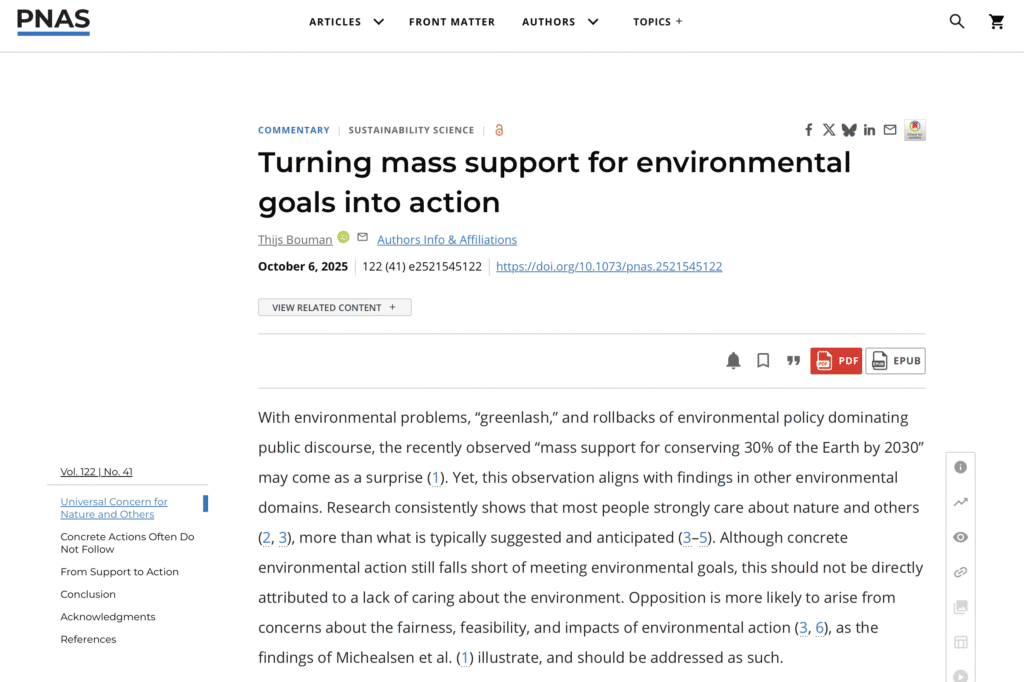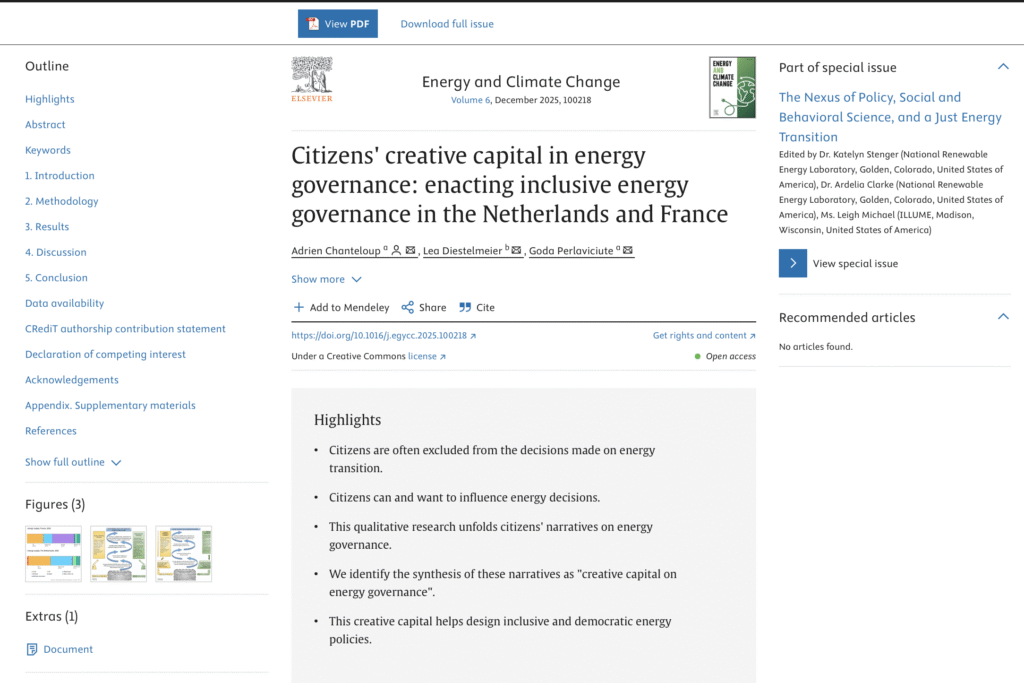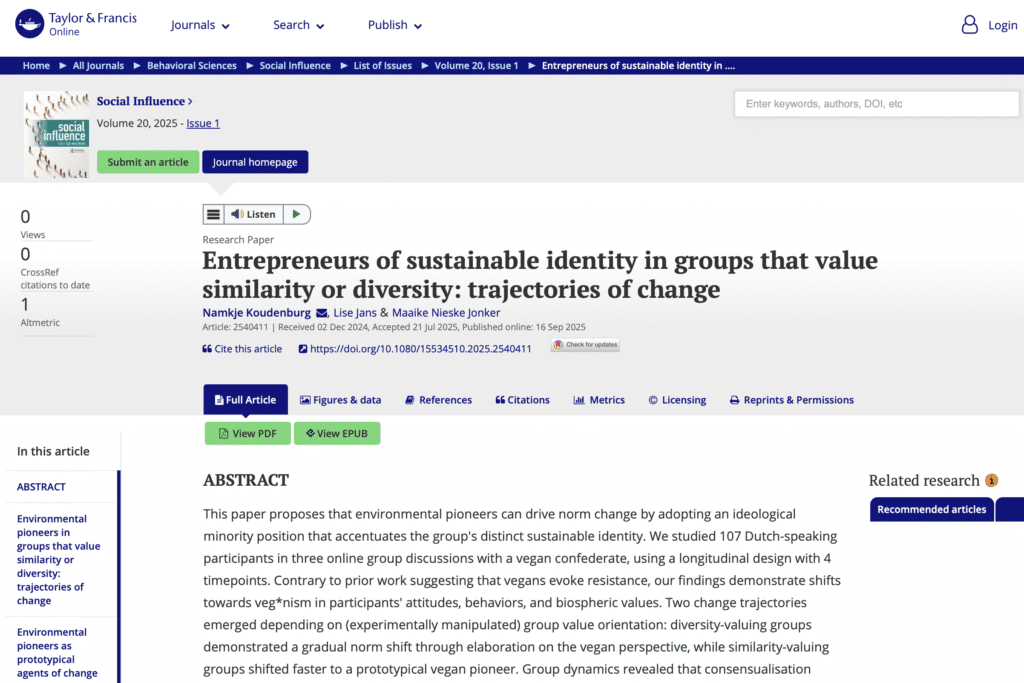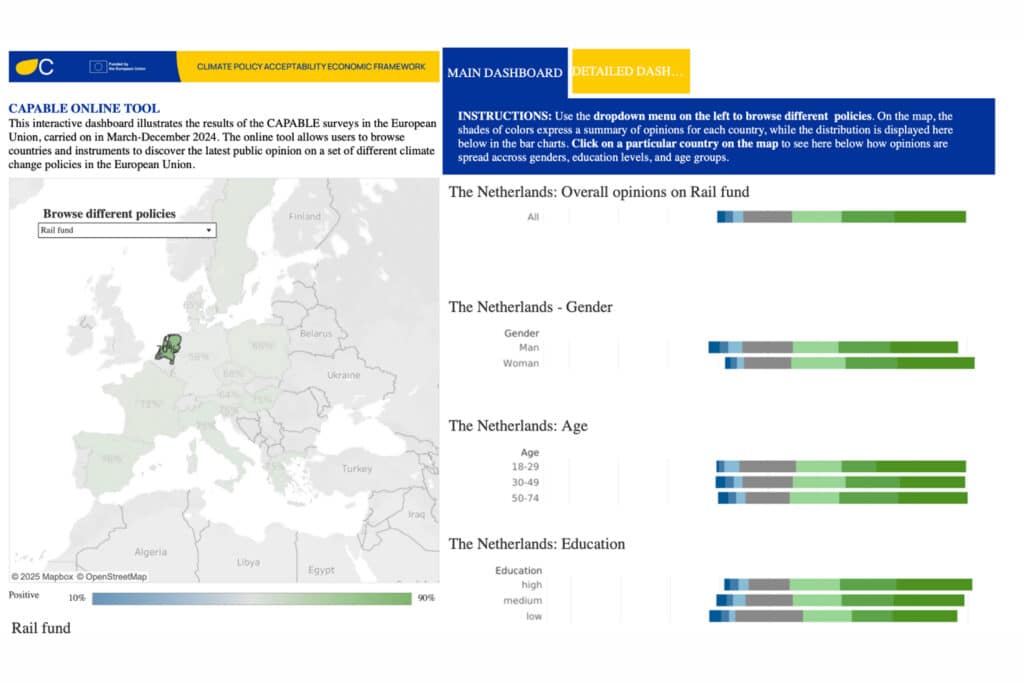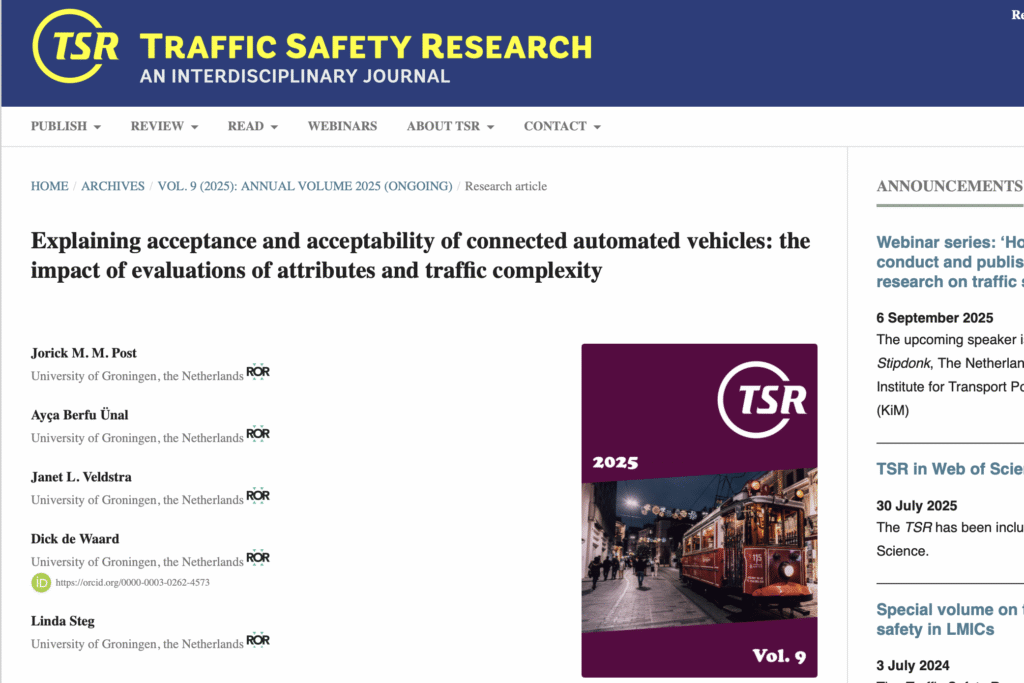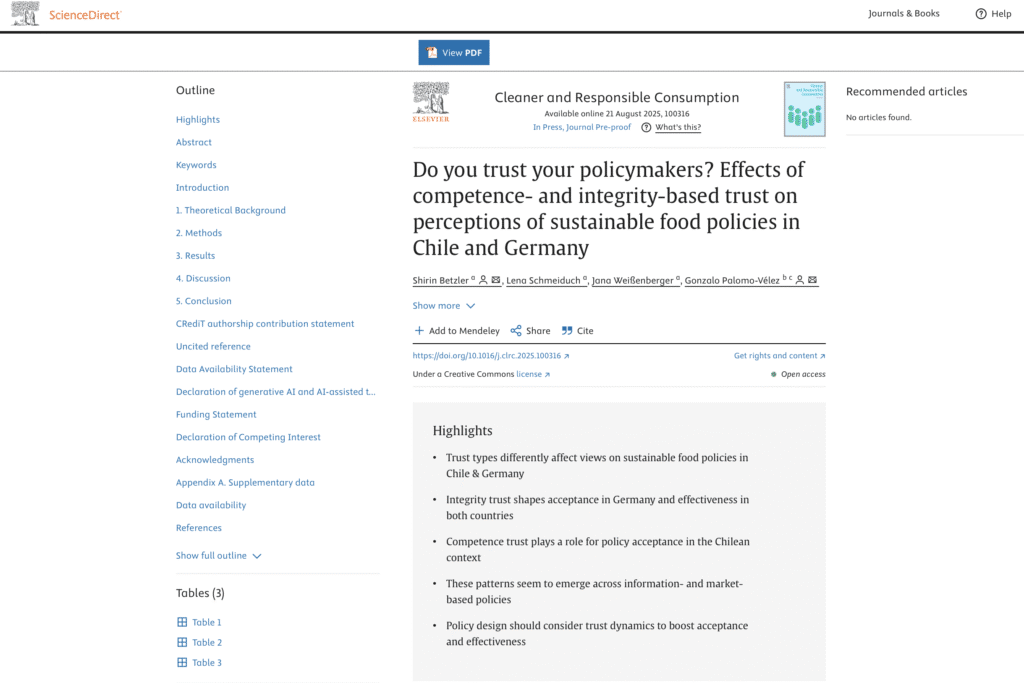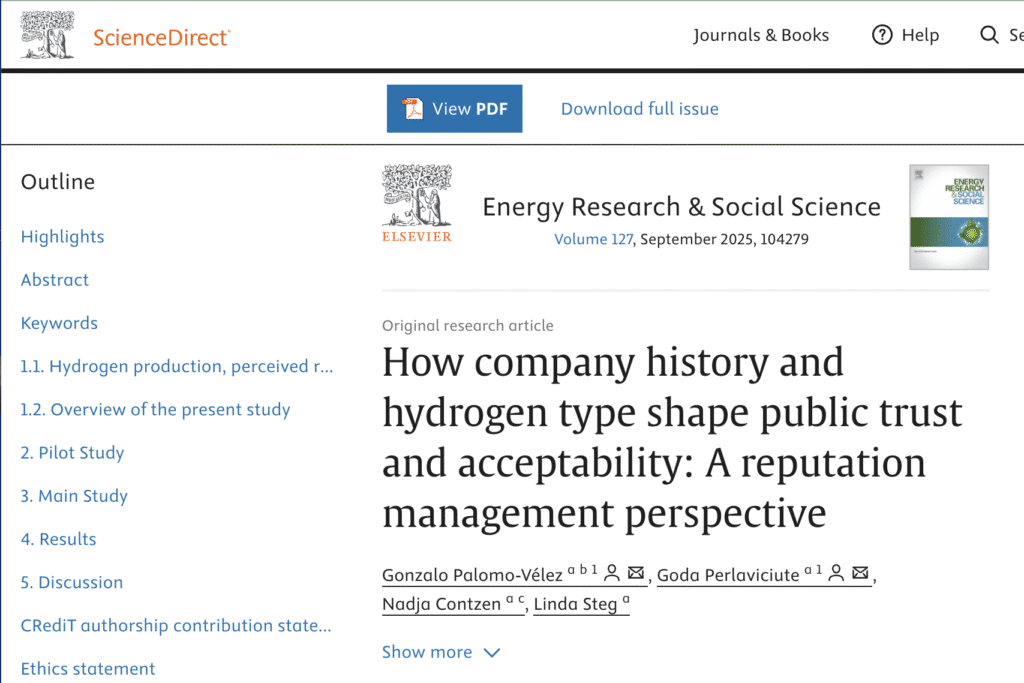Abstract
To limit climate change to 1.5 °C, negative emission technologies and practices (NETPs) are needed to supplement, not replace, other essential mitigation efforts. We conducted a large scale survey on NETPs in six EU countries (N = 5,310) to examine: (1) public preferences for NETPs, next to other mitigation options; (2) how people evaluate the environmental and intergenerational consequences and acceptability of nature-based (i.e., afforestation and reforestation; AR) and technology-based NETPs (i.e., direct air capture with carbon storage; DACCS); (3) the relationship between the evaluation of consequences and acceptability judgements of AR and DACCS; and (4) public preferences for AR and DACCS in general versus in their own country. In all six countries, people think NETPs are needed, but they prioritise the implementation of renewable energy sources and behaviour change. AR is preferred over DACCS, possibly because AR is evaluated more positively on its impacts on the quality of nature and environment, future generations, limiting global warming, and supporting other mitigation efforts than DACCS. Acceptability of AR is higher especially when people believe it positively impacts nature and the environment, while DACCS is more acceptable when people evaluate all four consequences more positively. We do not find evidence for the not-in-my-backyard conventional wisdom: DACCS were not evaluated more negatively in one’s own country than in general.
Forest or machine? Public perceptions and acceptability of negative emissions technologies and practices across six European countries
Chieh-Yu Lee, Goda Perlaviciute & Linda Steg
20 October 2025
Climatic Change
https://doi.org/10.1007/s10584-025-04043-x
